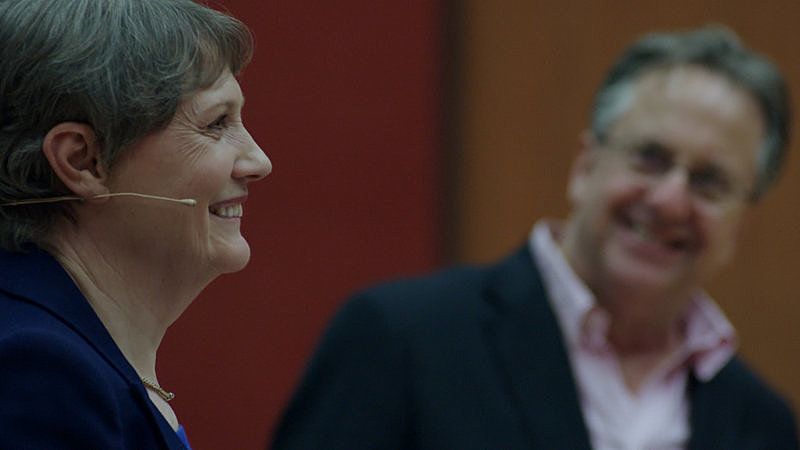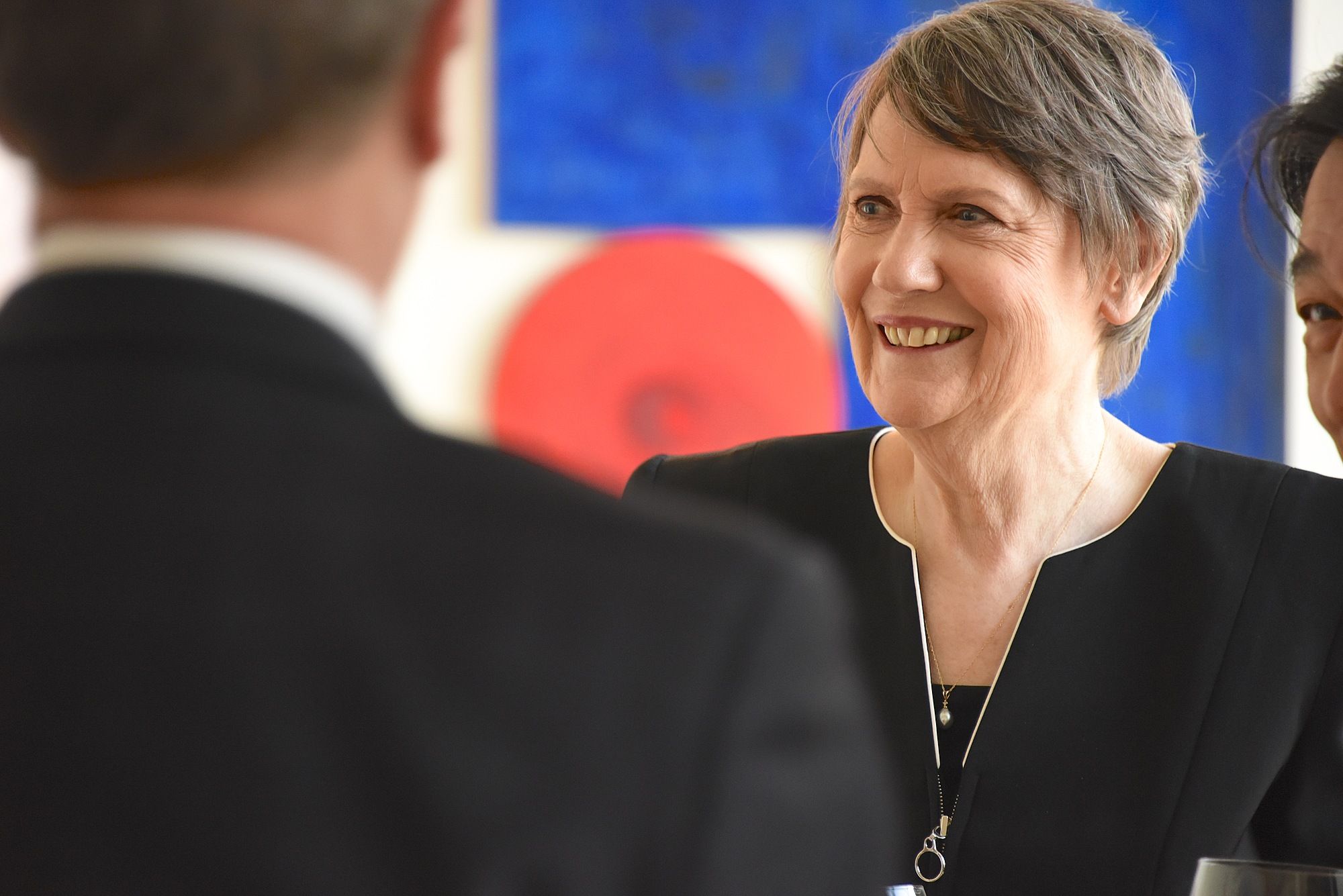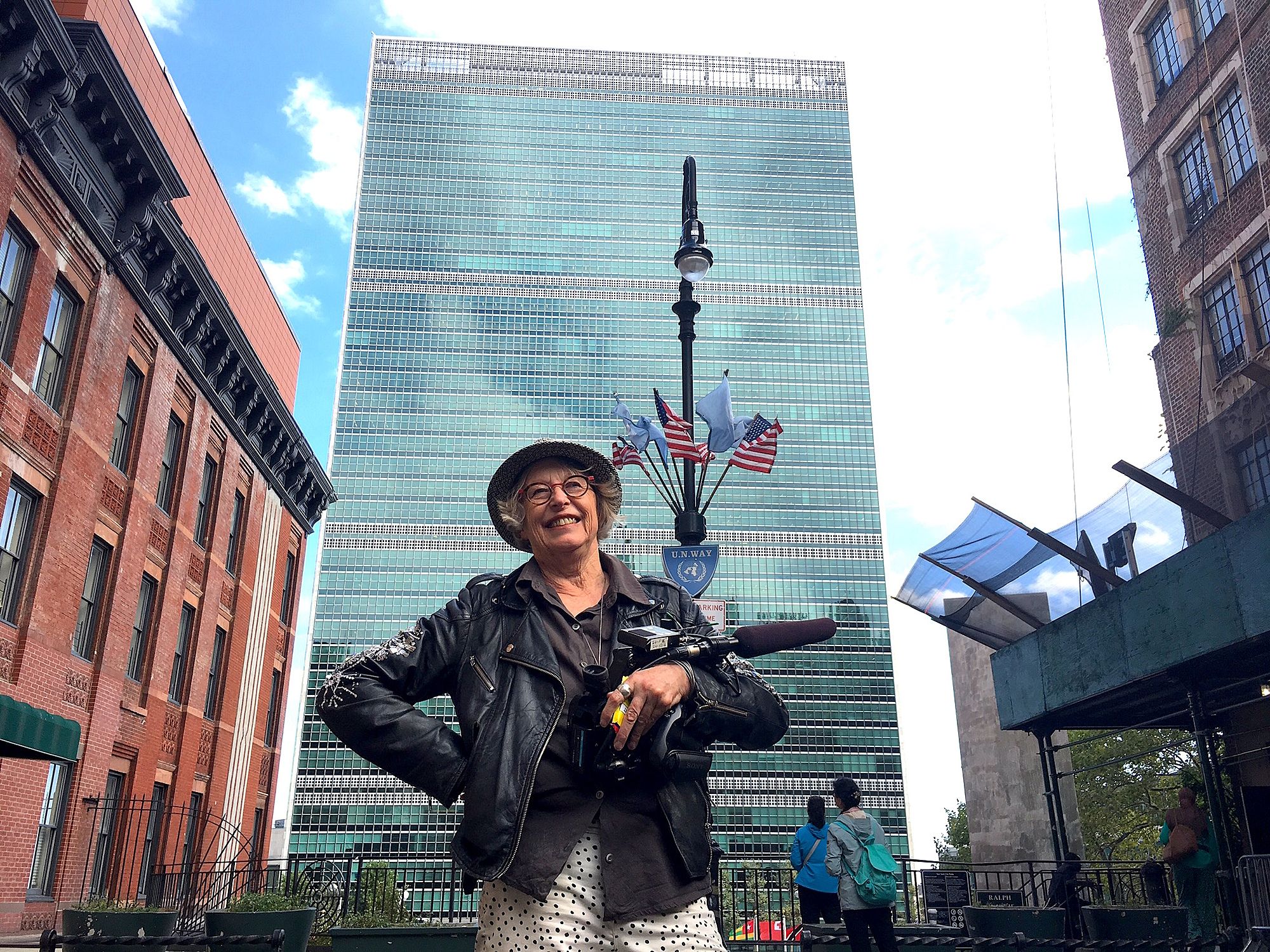Banging On The Ceiling: A Review of My Year With Helen
Jacob Powell reviews Gaylene Preston's documentary on Helen Elizabeth Clark
Gaylene Preston interrogates the inner workings of the United Nations, replete with glass ceilings and closed doors, on the coattails of former Development Programme Administrator, Helen Clark, as she campaigns to put a woman into the vaunted position of Secretary-General for the first time in the organisation’s 70 year history. It seems this particular ceiling is going to require further assault.
“We are punished for being the mothers of the human race.”
So says a Motswana woman to Helen Clark at a Women in Leadership meeting that the former NZ Prime Minister has arranged on a United Nations Development Programme (UNDP) trip to Botswana. Nearly two years later, this statement is echoed by My Year With Helen director, Gaylene Preston, in the feature’s post-screening Q+A session in Auckland, specifically pointed out as the moment her documentary found its subject.
Initially travelling to Botswana to shoot proof-of-concept footage for a ‘Helen Clark as the Administrator of the UNDP’ documentary idea, Preston was forced to change tack when, early in April 2016, Helen announced her candidacy for the position of UN Secretary-General. Already interested in the theme of women breaking ground in positions of power, Preston was reminded of the Motswana woman’s quote and decided to weave the film around its ever present thread.
My Year with Helen follows a linear timeline as we go through the various stages of its subject’s campaign – from the early promotion and ‘electioneering’ process towards the known defeat, which, by the end of the film, begins to feel inevitable. Preston and her small crew foster what relationships they can to secure interviews in and around an opaque organisation. This was never easy – the director commented at the Q+A that she and her small crew were seen as outsiders and that, likewise, many of their repeat interviewees were media people and interest group representatives who were also seen as UN outsiders. UN staff, for the most part, remained quite tight-lipped (aside from Helen herself). At one point, someone quips about the ‘whispering walls’ of the UN and it turns out to be no joke; much of the conversation that occurs within the UN actually appears to be carried out in whispers.
I’m not sure what led to the secretive nature of the workings of this institution, but it's telling that Helen’s tenure as head of the UNDP was marked by it quickly becoming the most transparent arm of the organisation to date, and hence providing much better accountability to funders of their global development work. In New Zealand, we know Helen Clark as a frank, direct person - more inclined toward action than political posturing. It slowly becomes apparent in the film that these very virtues will be the primary reasons she will get vetoed, come polling time. After the defeat, Helen remains stoically unphased. On the one hand it seems obvious that she could see this coming, and that she finds the process frustrating, but on the other hand, she is a big proponent of facing reality without making excuses, continually moving forward rather than becoming stuck. As Preston observed in the Q+A: “If you want to know about resilience, spend a little time with Helen.” She extrapolates, saying that women need to develop such resilience if they are to push past the inevitable failures, frustrations, and ceilings they will face.
Observing the inner workings of a well-known but little understood organisation like the UN is fascinating and eye opening. As one interviewee comments: “It is more exciting than the Olympics...for those us interested in multilateral diplomacy!” Preston does a great job of systematically building a compelling case for her thesis that the glass ceiling still exists for women in the UN, regardless of how capable they prove to be or how many goals for gender equality the body sets.
This last Secretary-General appointment appears to be the first time in the organisation’s history that the General Assembly have had a significant indicative say in the candidate selection process, including televised debates for the candidates to build a public platform of support. My Year With Helen shows how one of the recurring attitudes among the General Assembly membership is that it's high time a female Secretary-General be appointed. Despite comprising over half the world’s population, in the UN’s 70-year existence there have been only male Secretary-Generals, which calls to mind the opening quote of this review. Coming into the polling stage, of the 13 candidates put forward, 7 were women – progress indeed!
Despite the increased involvement of the broader UN membership, it's still the UN Security Council who decide upon which of the preferred candidates receive a recommendation for appointment. And even then, the five permanent members of the Security Council – China, France, Russia, the United Kingdom, and the United States – hold, and most definitely wield, the power to veto any candidate they don’t support. A single veto means a candidate is automatically disqualified from the race. All of the Security Council’s meetings are conducted in strict secrecy and none of the discussions are reported (excepting selective details that are inevitably ‘leaked’). The documentary observes that these five nation-states currently hold all effective power and appear more interested in a candidate who will follow their lead rather than a strong leader who will aim for organisational reform.
So, even though the UN appears to be moving slowly towards a more representative voting model, it's not there yet. When Ms. Clark is asked about the discrepancy between the popular indications of support for her – particularly online forums and polls, in which she was tracking as an early favourite for the Secretary-General role – and the fact that the eventual appointee turned out to have the least online presence, she comments: “What this tells me is that the millennial generation is not yet in power.” Perhaps she’s right, and that the sad truth is that reform may only come with an actual changing of the guard.
Helen, back in New Zealand on a short holiday, spends each night making extra food, which she packs in old margarine containers for her father’s freezer so that he has a plentiful supply of tasty, easy to reheat meals. George is effusive in his praise of ‘Helen’s curries’.
Preston and editor Paul Sutorius do a creditable job of weaving together interviews with Helen (in the UN and on the road) with commentaries by interested parties about how they view her as a person, her candidacy, and how they think the campaign is going. They also wend in some great, personal footage to round out Helen’s persona. Among a few touching moments with her father, George Clark, there is a scene, where Helen, back in New Zealand on a short holiday, spends each night making extra food, which she packs in old margarine containers for her father’s freezer so that he has a plentiful supply of tasty, easy to reheat meals. George is effusive in his praise of ‘Helen’s curries’. The scene illustrates the consistency of Helen’s values as both a private person and a public figure, playing out on a micro-scale the kinds of practical initiatives she's bringing at a macro-level in her UNDP portfolio. It's also an amusing counterpoint to an earlier scene where people are grouping Helen Clark and Hillary Clinton (‘the HCs’!) as similar women attempting to break into male-dominated power structures. While both are forging ahead as great female role models in international leadership, I can’t picture Hillary in a poky little bach kitchen, dishing chicken tikka into a stack of washed out Meadowlea containers!
My Year with Helen comes with a striking, well themed score, written by the director’s sister, Jan Preston. Surprisingly, this project is only the second that the sisters have collaborated on, despite Jan’s thriving career working on documentary soundtracks in Australia (where she is based). It turns out the pair decided not to work together at the beginning of their careers, in the hope of avoiding a work conflict that might damage their personal relationship, as they’d seen happen to others. However, when Gaylene was working on her personal family history project Home By Christmas (starring her own daughter, Chelsie) it made sense that Jan should do the music. The experience was so good that they decided their rule was probably unnecessary. Jan’s main theme for My Year with Helen is a repetition of the word ‘women’, in many different languages, sung by a range of international voice talent, including New Zealand’s own Annie Crummer.
Full of hopes unfulfilled, and revealing a frustrating lack of institutional transparency, it's somewhat surprising how hopeful My Year with Helen leaves you feeling. As inevitable as Helen’s lack of success in this campaign feels, so too does imminent change. One viewer summarised their seemingly paradoxical experience of the film as “both depressing and energising”, and I think it is fair to say that it's the subject herself who energises. Helen's pragmatic optimism wins out over whatever failures she experiences along the way, and with such examples our institutions will also keep moving forward.
My Year With Helen



